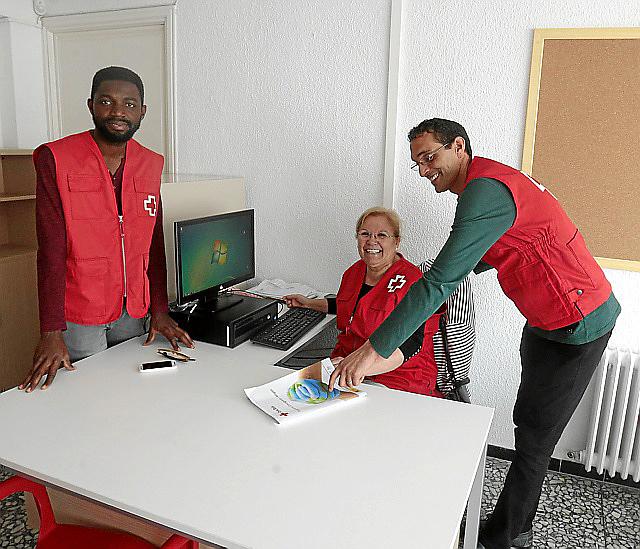Refugees are finally arriving in Majorca. Three - a family of two adults and a child - were taken in yesterday at the hostel in Playa de Palma. They have come from Albania and will be followed by 38 over the next few weeks who are currently in Greece (having fled the conflict in Syria) and one from Pakistan.
The refugees are coming thanks to agreement between central government and the Balearics. It is the first time that there is such a collaboration as normally refugee intake is at state rather than regional level. The Balearic minister for social services and cooperation, Fina Santiago, says that the family which has arrived has had an asylum claim accepted by the state. Madrid confirmed that the family would be coming on Sunday.
In speaking about the refugee intake yesterday, Santiago added that the hostel has been approved and thanks for this had to go various organisations and to the public who have shown their support. She went to say that the state was somewhat "overwhelmed" by the refugee issue and criticised Europe for not acting in accordance with European values. "Future generations will judge us on how we have dealt with the Syrian conflict."
The arrival of the refugees means, she said, that the Balearics have become a "land of welcome" and are turning around what Europe is doing, with autonomous communities (like the Balearics) having insisted that they be "collaborative administrations".
Antoni Barceló, the president of the Creu Roja (Red Cross) in the Balearics, explained that as refugees arrive, its people will seek to get to know all about their personal and family situation. The hostel will attend to the basic necessities of refugees and will also offer psychological, legal and translation services. All the tools necessary for them to be independent when they leave the hostel will be available. There is a three-phase process of welcome, integration and then autonomy.
In 2015, Barceló added, the Red Cross in Spain had dealt with 12,800 asylum-seekers. He and Santiago appealed to the Balearic public and media to respect the privacy of the refugees. They should be allowed to come and be greeted with the maximum care and support possible. In order to provide this, the Red Cross has a large team to help them make their lives easier.


6 comments
To be able to write a comment, you have to be registered and logged in
HelloRecently someone tried to tell me about Majorca in relation to refugees. I hope Majorca would take me if I applied. I am in a bad political situation and know a bit about Majorca as I read once the autobiography of Tomas Graves. The situation I am in isn't really that bad - the issue is basically Australia is owned by the Queen of England and Australia would be better off as a republic.
Future generations will be too terrified to walk the streets in case of suicide attack
Obviously,they will be made much more welcome than tourists,as we all now know.
"Future generations will judge us on how we have dealt with the Syrian conflict." They certainly will! Could you also expand on the "we" bit.
I wonder how many refugees Ms Santiago is putting up in one of her three properties, or does she prefer us to pay for it whilst she gets the kudos ?.
Open door to more terrorists go on you will have a terrorist ridden country like the uk